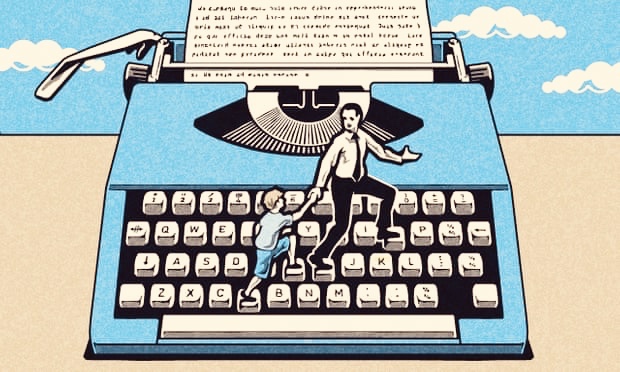Is it a good thing that the Supreme Court of India has not announced guidelines for media coverage of court cases? Or has it opened the floodgates by introducing a “neturalising device” that underlines the right of the accused to seek postponement of coverage on a case-by-case basis?
And, by introducing a “constitutional principle” has the judiciary appropriated to itself the power of the legislature to make law?
***
The Tribune, Chandigarh: Thoughtless curbs
The Supreme Court judgment that courts can defer media coverage of a case for a short period if there is a danger to an individual’s right to fair trial will curb freedom of the Press, limit the people’s right to know and unnecessarily encourage litigation. Growing complaints of “trial by media” had prompted Chief Justice S.H. Kapadia to initiate a discussion on framing guidelines for court reporting….
There is a growing tendency in the judiciary as well as the executive to curb free speech. The Allahabad High Court banned all media reporting of troop movements after a news report hinted at a coup attempt. The government recently gagged social media sites on the pretext of restoring order. The arrest of a West Bengal professor for circulating a cartoon, the removal of cartoons from school textbooks and the slapping of a sedition case against a cartoonist for disrespecting the national emblem are other instances of executive intolerance of dissent. Vague judgments like the one in the Sahara case will only fuel this tendency.
**
Deccan Herald, Bangalore: Gag on media
A fresh threat to the right to free speech and expression, which has been sanctified by the Constitution, has come from an unlikely place, the Supreme Court of India, which has in the past protected and promoted it as a basic entitlement of citizens. Its judgement empowering courts to ban reporting of hearings in cases where there is a perceived chance of interference in free and fair trial amounts to muzzling media freedom. It needs to be opposed like all other assaults on the functioning on the media, which are becoming frequent now.
The court has propounded a ‘constitutional principle’ which would allow aggrieved parties to seek postponement of the publication of hearings if they are seen to be prejudicial to the administration of justice. But this is disguising an unfair restriction as a constitutional doctrine, creating a devious device to undermine a basic right.
**
The Indian Express: Lines of control
This “doctrine of postponement” of reporting is meant to be a preventive measure, rather than a punitive one, and is intended to balance the right of free speech with the right to a fair trial. The courts, the SC said, will evaluate each appeal carefully, guided by considerations of necessity and proportionality. However, the very outlining of the principle, in effect, leaves journalism at the mercy of the high court, rather than being internally regulated with better editorial gatekeeping.
**
The Hindu: Don’t compromise open justice
The Supreme Court’s judgment justifying a temporary ban on the publication of court proceedings in certain cases is likely to have a chilling effect on the freedom of the press and the very idea of an open trial…. Indeed, by emphasising the right of an aggrieved person to seek postponement of media coverage of an ongoing case by approaching the appropriate writ court, there is a danger that gag orders may become commonplace. At a minimum, the door has been opened to hundreds and thousands of additional writs — a burden our legal system is unprepared to handle — filed by accused persons with means.
**
Mint: Judgment and some worries
While the court prescribed tests of reasonableness, among others, on deciding issues of postponement, time is of the essence for media and citizens dependent on it for information. It is not far-fetched to presume that during this period of stasis, reporters and editors, can be arm-twisted into submission. The judgement whittles down an already embattled freedom available to the Press. It will add psychological pressure and uncertainty in an already difficult environment.
**
Business Standard: Tilting the balance
Tuesday’s judgment has done is to tilt the balance in favour of litigants seeking court interventions — which might well result in the imposition of such gag orders on the media. To that extent, the apex court’s order is prone to misuse…. The legal process (of deferement) is certain to cast an adverse impact on the freedom of the media and undermine the people’s right to know about such cases before the court.
Instead of paving the way for such curbs, it would perhaps make more sense if the courts took upon themselves the responsibility of allowing independent and comprehensive electronic coverage of court cases that both the people and the media can freely access for information or reportage. That would be a more effective way of ensuring that the coverage of court proceedings does not create the risk of prejudice to the proper administration of justice or to the fairness of trials.
**
The Times of India: Chilling effect
The bench headed by outgoing Chief Justice of India S.H. Kapadia came up with an alternative approach to maintaining the balance between free speech and fair trial. Drawing upon the contempt law, the apex court devised a judicial power to order the postponement of publication as a last resort. Even this, however, may negatively impact the salutary principle that trials be held in public, as powerful defendants could routinely invoke such postponement orders…. The media is anyway a heterogeneous entity and the right of journalists to cover court proceedings is an essential attribute of a fair trial.
Cartoon: courtesy R. Prasad/ Mail Today









I am not surprised at the Media’s reaction… rather than scream themselves hoarse over the so-called excess, they can better utilise their energies on The After effects of The Nuclear Deal, Corruption, Economy, Armed Forces preparation and lack of weapons systems & ammunition, Overpopulation, Poverty, Lack of Police reforms, Criminals in politics, Lack of educational reforms etc etc
There are any number of issues for them to write on… and yet we hear a deafening silence on them. Nothing. Zilch. Shhhhhhhh. Quiet. What happened to the precious freedom of speech when it comes to these issues? Why only sporadic coverage, if at all? Aren’t these important? Why this sensationalism?
Hah! Baat karte hain!
I am with courts in this…. it seems the the courts are running India. Well Done, Justice System! India needs you…. keep it up!